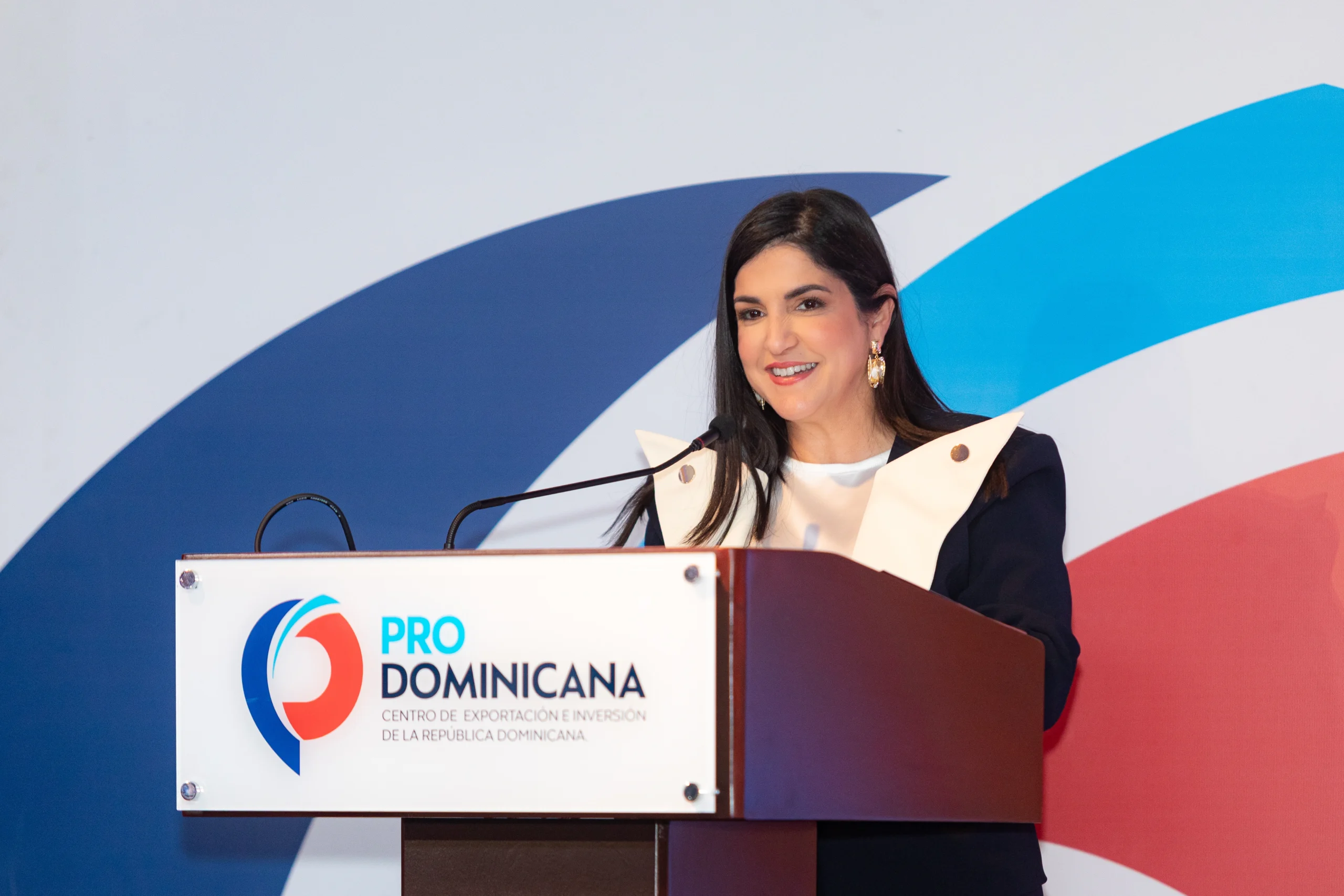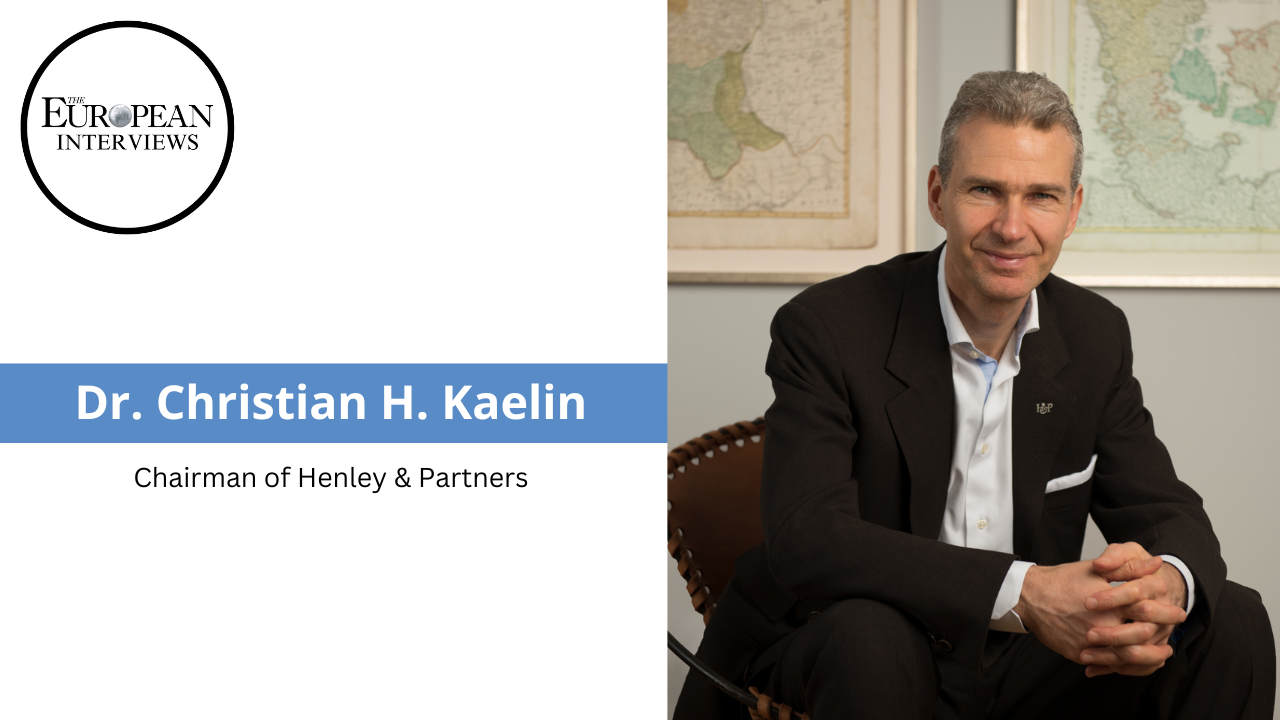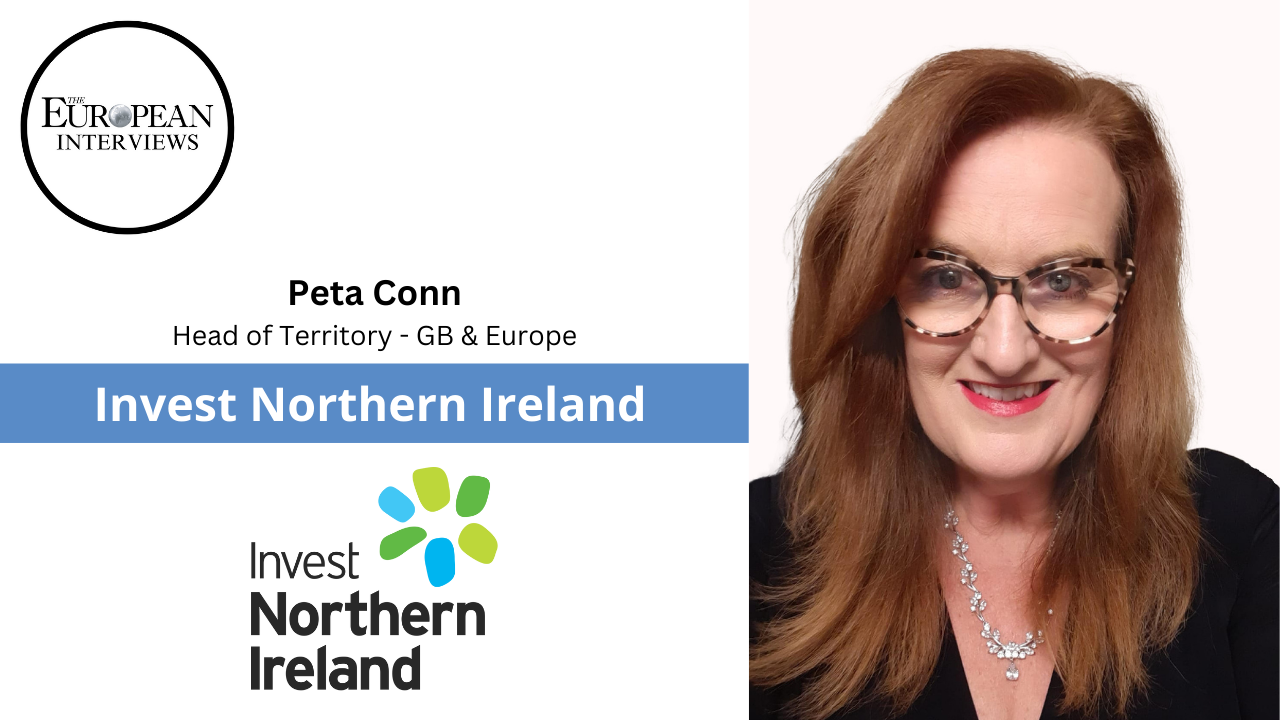The banking shift that Europe’s businesses can’t afford to ignore

John E. Kaye
- Published
- Foreign Direct Investment

What happens to corporate deposits once they leave the balance sheet is attracting renewed attention in boardrooms across Europe. John E. Kaye meets Sharon Shimmin of Capital International Bank to explore how a custody-based, non-lending model is helping firms regain control over liquidity, risk and visibility
Sharon Shimmin has spent more than three decades in banking, but few periods, she says, have brought such a marked change in how clients approach the fundamentals. As Head of Business Development at Capital International Bank on the Isle of Man, her focus is on working with international businesses and financial intermediaries to find stability in a financial environment that is anything but.
“In uncertain times, we know that corporate clients need to be able to adapt quickly to sudden changes in their circumstances,” she tells The European. “For many, this means ensuring they have sufficient liquidity available to facilitate a fast response rather than having to wait to access monies that have been locked away in long-term deposits or investments.”
Capital International Bank’s ‘AAAf’ rated* Excess Fiduciary Account places deposits in excess of £500,000 across at least one other highly rated third-party institution—such as NatWest—with depositors retaining same-day access** to their monies. “This account provides clients with quick access to their monies whilst offering much stronger interest returns than a typical liquidity /current account,” Sharon says***.
The bank earns its income through fixed fees and commissions, not lending margin. This means the bank carries no lending risk and clients retain full visibility over where their fiduciary deposit funds are and how they’re held.
It is a model that appeals to businesses with strict treasury mandates or governance frameworks that limit exposure to bank balance sheets. For clients managing large or mobile liquidity positions, or operating in multiple jurisdictions, the structure also offers something that standard commercial banks cannot: segregation, transparency and same-day access, without compromise.
“Corporate clients are now looking for much more from their banking provider than simple transactional management,” Sharon says. “And it’s our role, as a responsive banking partner, to keep pace with their shifting expectations.”
It’s a model increasingly in demand, particularly among clients with international exposure and internal governance frameworks that discourage concentration in any single banking institution. “We’ve seen a trend of businesses tightening up their approach to risk,” she explains. “This often means corporates holding multiple accounts across several banks in order to diversify their monies and spread their risk, reducing their exposure to just one bank.”
The challenge, Sharon adds, is administrative. “The problem with having multiple accounts like this however is the admin involved in establishing the accounts in the first place and then maintaining them throughout their lifespan.”
Capital International Bank offers a solution to that problem through its fiduciary accounts, which allow qualifying clients to spread funds across a panel of highly rated counterparties without the burden of opening and managing separate accounts at each. “Our fiduciary deposit accounts come with no additional account fees and allow qualifying clients to spread their monies across more than one bank. All interest income is for the benefit of the clients and the commission charged by Capital International Bank is simple and transparent. We only have relationships with highly rated banks which meet our strict counter-party requirements, these include NatWest and Santander.”
The bank offers accounts and payments in 20 different currencies, a feature increasingly valued by globally active firms transacting across borders. Its foreign exchange service is simple to use, and clients are able to access refreshed exchange rates every two minutes.
Pricing, Sharon notes, is clear. “While some corporate bank accounts offer their services for free, we maintain a fee-based model that allows us to remain a low-risk banking option for our clients. Our proposition provides qualifying clients with access to all our account types, including our various interest-bearing products, and many of our clients find that the enhanced returns available generate a net positive return, making our services a cost-effective option.”
That clarity extends to the bank’s platform, which was built specifically for corporate use. “The accelerating pace of technological innovation means corporate clients now expect their banking partners to deliver cutting-edge digital solutions,” she says. “Our platform is purpose-built for corporates, offering essential features that simplify day-to-day banking activities—such as live foreign exchange rates, updated every two minutes, streamlined UK domestic and international payments, and digital mandate management.”
Clients also benefit from real-time support from the bank’s expert team based in the Isle of Man—something Sharon sees as critical. “Few things are more frustrating than being stuck in a phone queue for hours just to resolve a simple issue. We believe our clients deserve to speak to a real person and get clear answers—quickly and efficiently.”

Feedback, too, is central. “Through our Voice of the Client Forum, we actively gather and review feedback, using it to drive continuous enhancements to our platform. One such enhancement is the upcoming launch of our corporate banking mobile app. This new solution will empower users to check balances and authorise payments on the go—bringing greater flexibility and control to their financial operations.”
Sharon, who is also a champion of the Isle of Man’s wider financial services community, sees the renewed focus on treasury structure as an overdue adjustment. “The pattern we’re seeing isn’t just about reacting to volatility,” she says. “It’s about building better structure into how businesses manage risk.”
If you’re seeking a reliable digital banking partner to support your business in today’s dynamic financial landscape, we’d love to hear from you. Please feel free to reach out to us at: [email protected] or visit our website www.capital-iom.com/bank to find out more.
The views, thoughts and opinions expressed within this article are those of the author, and not those of Capital International Group Limited (Group) and/or any of its subsidiary companies and as such are neither given nor endorsed by the Group or any company within the Group. Opinions constitute views as at the date of issue thereof and are subject to change.
*Whilst a fund credit quality rating methodology has been used by S&P Global Ratings, the EFA is not itself a fund, but rather a pooled account supporting the financial products known as fiduciary deposits. Click here for more info.
**Latest time for the transfer of funds from EFA to CTA is 14:00 with authorisation by 14:15. Latest time for transfer of funds from CTA to EFA is 14:30 with authorisation by 14:45. Outward payments cannot be made from the EFA. In order to access the EFA, a Capital Call Account (CCA) and Capital Treasury Account (CTA) must first be opened. CCA and CTA balances are held on the balance sheet of Capital International Bank Limited and assumption of risk is to Capital International Bank Limited. EFA balances are held with third party recipient bank(s) and assumption of risk in relation to EFA balances is to the recipient bank(s). Terms and conditions and fees related to the CCA, CTA and EFA are set out on the website www.capital-iom.com/bank. Cut-off times correct as at 17/06/2025 and are subject to change.
***Gross interest earned on GBP Excess Fiduciary Account (EFA) balances is currently 2.85% per annum, USD EFA is currently 2.60% and EUR EFA is currently 0.75% per annum. The gross interest will be calculated on the balance held in your EFA at the end of each day (subject to value date having been achieved in light of cut off times set out below) and will be credited to your EFA on a quarterly basis. Gross interest rates are subject to change from time to time. There is a GBP commission fee of 0.85% per annum, a USD commission fee of 0.60% per annum and EUR commission fee of 0.375% per annum charged by Capital International Bank Limited, resulting in a net return of 2.00% for GBP EFA, 2.00% for USD EFA and 0.375% for EUR EFA. The commission will be calculated on the balance held in your EFA at the end of each day and will be charged to your EFA at the end of each quarter when the interest is credited. The Annual Equivalent Rate (AER) net return on GBP is 2.015%, USD is 2.015% and EUR is 0.376%. The AER illustrates what the net return would be if interest (net of commission) is paid quarterly and compounded each quarter. Rates correct as at 17/06/2025 and are subject to change.
Capital International Bank Limited is a wholly owned subsidiary of Capital International Group Limited a privately owned financial services group based in the Isle of Man. Capital International Bank Limited is licensed by the Isle of Man Financial Services Authority and operates as a non-retail, restricted deposit taker under a Class 1 (2) licence. Deposits are not covered by the Isle of Man Depositors’ Compensation Scheme and terms and conditions apply. Capital International Bank and Capital International are trading names of Capital International Bank Limited. Capital International Bank Limited is also licensed by the South African Reserve Bank Prudential Authority to conduct the business of a Representative Office in South Africa. Full company details can be viewed here.
RECENT ARTICLES
-
 Zanzibar’s tourism boom ‘exposes new investment opportunities beyond hotels’
Zanzibar’s tourism boom ‘exposes new investment opportunities beyond hotels’ -
 Residence and citizenship planning is reshaping global wealth strategies
Residence and citizenship planning is reshaping global wealth strategies -
 Building sovereign bridges by attracting global investors
Building sovereign bridges by attracting global investors -
 Bahrain cuts property investment threshold for golden residency
Bahrain cuts property investment threshold for golden residency -
 Where mobility meets opportunity: Malta’s strategic advantage for global investors and innovators
Where mobility meets opportunity: Malta’s strategic advantage for global investors and innovators -
 UK government sets up Women in Tech taskforce amid gender imbalance concerns
UK government sets up Women in Tech taskforce amid gender imbalance concerns -
 Malta introduces Nomad Heritage Card for remote professionals
Malta introduces Nomad Heritage Card for remote professionals -
 How free global cities could reshape the future of migration
How free global cities could reshape the future of migration -
 Dominican Republic positions itself as Caribbean hub for sustainable trade and investment
Dominican Republic positions itself as Caribbean hub for sustainable trade and investment -
 Biviana Riveiro Disla speaks to The European about the Dominican Republic’s role as a hub for trade and investment
Biviana Riveiro Disla speaks to The European about the Dominican Republic’s role as a hub for trade and investment -
 Liechtenstein tops global index for foundations
Liechtenstein tops global index for foundations -
 Keeping the door open: wealthy UK citizens investing their way back into the EU
Keeping the door open: wealthy UK citizens investing their way back into the EU -
 Ethiopia emerges as a sustainable investment leader on the African stage
Ethiopia emerges as a sustainable investment leader on the African stage -
 France’s FDI renaissance marks a Nouvelle Ère for Europe
France’s FDI renaissance marks a Nouvelle Ère for Europe -
 The Turks and Caicos Islands: A new era for financial services and innovation
The Turks and Caicos Islands: A new era for financial services and innovation -
 Jersey in focus – an interview with Chief Minister Deputy Lyndon Farnham
Jersey in focus – an interview with Chief Minister Deputy Lyndon Farnham -
 Malta – a popular base for digital nomads
Malta – a popular base for digital nomads -
 Move to Guernsey: The Channel’s island gem
Move to Guernsey: The Channel’s island gem -
 Malta’s residency-by-investment programme: a clear path to permanent residency
Malta’s residency-by-investment programme: a clear path to permanent residency -
 The banking shift that Europe’s businesses can’t afford to ignore
The banking shift that Europe’s businesses can’t afford to ignore -
 High-net-worth Europeans turn to investment migration amid security fears
High-net-worth Europeans turn to investment migration amid security fears -
 Beyond the beaches: a spotlight on the Turks and Caicos Islands
Beyond the beaches: a spotlight on the Turks and Caicos Islands -
 Video Interview with Dr. Christian H. Kaelin of Henley & Partners
Video Interview with Dr. Christian H. Kaelin of Henley & Partners -
 Ireland’s resilience and future in Foreign Direct Investment
Ireland’s resilience and future in Foreign Direct Investment -
 Video Interview with Peta Conn of Invest Northern Ireland
Video Interview with Peta Conn of Invest Northern Ireland


























